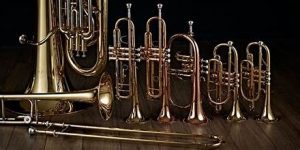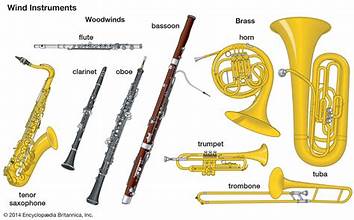Uncategorized
Best Musical Instruments for Classical Music Enthusiasts
Best Musical Instruments for Classical Music Enthusiasts
Classical music, with its intricate compositions and rich history, continues to captivate music lovers around the world. For those passionate about this genre, the right instrument can open the door to a deeper understanding and appreciation of classical music. At Onebestluxetexas, we believe that selecting the perfect instrument is essential for anyone looking to master the art of classical music. In this article, we’ll explore the best musical instruments for classical music enthusiasts, each offering its unique sound and role in the timeless tradition of classical music.
1. Piano
The piano is often considered the cornerstone of classical music. From Baroque to Romantic and everything in between, the piano has played a pivotal role in shaping classical music compositions. Whether you’re performing a delicate Chopin Nocturne or Beethoven’s monumental piano sonatas, the piano’s versatility and expressiveness make it ideal for classical music enthusiasts.
Why It’s Great for Classical Music:
- Wide Range of Repertoire: From Mozart to Rachmaninoff, the piano has an extensive classical repertoire.
- Harmonic Depth: The piano’s ability to play both melody and harmony at the same time makes it essential for many classical pieces.
- Expressive Dynamics: The piano’s range of dynamics allows performers to create nuanced, emotionally charged performances, a hallmark of classical music.
Recommended For:
- Those interested in exploring a wide range of classical styles.
- Musicians who want to master both solo and ensemble performances.
2. Violin
The violin is one of the most iconic instruments in classical music, known for its expressive capabilities and ability to convey deep emotion. As the lead string instrument in orchestras, chamber music, and solo performances, the violin is a staple of the classical music tradition.
Why It’s Great for Classical Music:
- Expressive Tone: The violin’s ability to produce a wide range of emotions—from soaring melodies to sorrowful themes—makes it an essential classical instrument.
- Solo and Ensemble Roles: Whether performing solo concertos like those by Tchaikovsky or playing in an orchestral setting, the violin is versatile in both contexts.
- Rich History: The violin has been a central part of classical music since the Baroque period, with countless compositions dedicated to it.
Recommended For:
- Those who enjoy performing both in orchestras and as soloists.
- Classical musicians looking for an instrument with great emotional range.

3. Cello
The cello, known for its deep, resonant tone, is another key instrument in classical music. As one of the most expressive members of the string family, the cello often carries the emotional weight of orchestral pieces, as well as providing an essential harmonic foundation.
Why It’s Great for Classical Music:
- Rich, Warm Sound: The cello’s low register provides a warm and full-bodied sound that adds depth to any musical composition.
- Versatility: The cello performs in orchestras, string quartets, and as a solo instrument, making it versatile in many classical music settings.
- Emotional Depth: The cello is known for its capacity to express a wide range of emotions, from melancholy to joy, making it indispensable in classical performances.
Recommended For:
- Musicians who enjoy a deep, resonant tone.
- Those interested in both solo performances and orchestral or chamber music.
4. Flute
The flute is one of the most popular woodwind instruments in classical music. Its clear, bright sound is often used to carry the melody, particularly in orchestral and chamber music. From Baroque concertos to contemporary symphonies, the flute has been a central instrument in classical music history.
Why It’s Great for Classical Music:
- Light, Airy Tone: The flute’s bright and ethereal sound makes it ideal for playing both delicate and powerful melodies.
- Orchestral Importance: In orchestras, the flute is often used for its ability to soar above the strings and provide melodic contrast.
- Extensive Repertoire: Classical composers like Mozart and Bach wrote major works for the flute, creating a vast catalog of repertoire.
Recommended For:
- Those who enjoy bright, melodious sounds.
- Musicians looking to perform both in solo and ensemble settings.
5. Oboe
The oboe is a distinctive woodwind instrument known for its poignant, expressive sound. With its unique timbre, the oboe often serves as the voice of emotion in classical orchestral music. The instrument has a rich history, particularly in the Classical and Romantic periods.
Why It’s Great for Classical Music:
- Unique Sound: The oboe has a distinct, somewhat reedy tone that stands out in orchestral settings.
- Expressive Capabilities: Its ability to convey emotion and drama makes it a valuable solo instrument in many classical compositions.
- Orchestral Role: The oboe often carries the melodic voice in orchestras, particularly in slow, lyrical movements.
Recommended For:
- Musicians interested in a unique and expressive woodwind sound.
- Those who want to specialize in orchestral or chamber music.
6. Harp
The harp is one of the most beautiful and elegant instruments in the classical world, with its heavenly sound and intricate finger technique. Though less common than some of the other instruments mentioned, the harp is an integral part of orchestral and solo classical music.
Why It’s Great for Classical Music:
- Lyrical Quality: The harp’s ability to create shimmering arpeggios and soothing melodies gives it a unique sound in classical compositions.
- Rich Historical Tradition: From the Baroque period to modern symphonies, the harp has had a significant role in many classical works.
- Visual Appeal: The harp is visually striking, making it a stunning addition to both orchestral settings and solo performances.
Recommended For:
- Musicians looking for an instrument that combines visual appeal with lyrical sound.
- Those interested in both solo performances and orchestral or chamber music.
7. French Horn
The French horn is one of the most revered brass instruments in classical music. Known for its rich, full sound and ability to play both melodies and harmonies, the French horn plays a critical role in orchestras and ensembles.
Why It’s Great for Classical Music:
- Rich Tone: The French horn’s deep, mellow tone is ideal for playing both heroic and lyrical passages in orchestral pieces.
- Orchestral Role: The French horn is often featured in symphonic works, especially in film scores and dramatic orchestral music.
- Range and Flexibility: The French horn’s extensive range allows it to tackle both high and low notes with ease.
Recommended For:
- Brass musicians who enjoy a full, majestic sound.
- Those interested in playing in orchestras or as part of brass ensembles.
Conclusion

Whether you’re a seasoned classical musician or someone looking to dive into the world of classical music, the right instrument can make all the difference. Each of the instruments listed here has played an essential role in shaping classical music, offering a unique sound and creative opportunities for musicians.
At Onebestluxetexas, we are proud to offer a wide selection of musical instruments suited for classical music enthusiasts. Whether you’re drawn to the delicate melodies of the flute, the rich harmonies of the violin, or the expressive depth of the cello, we have the perfect instrument for you to start or continue your musical journey.
Explore our collection today, and let your classical music aspirations come to life!

